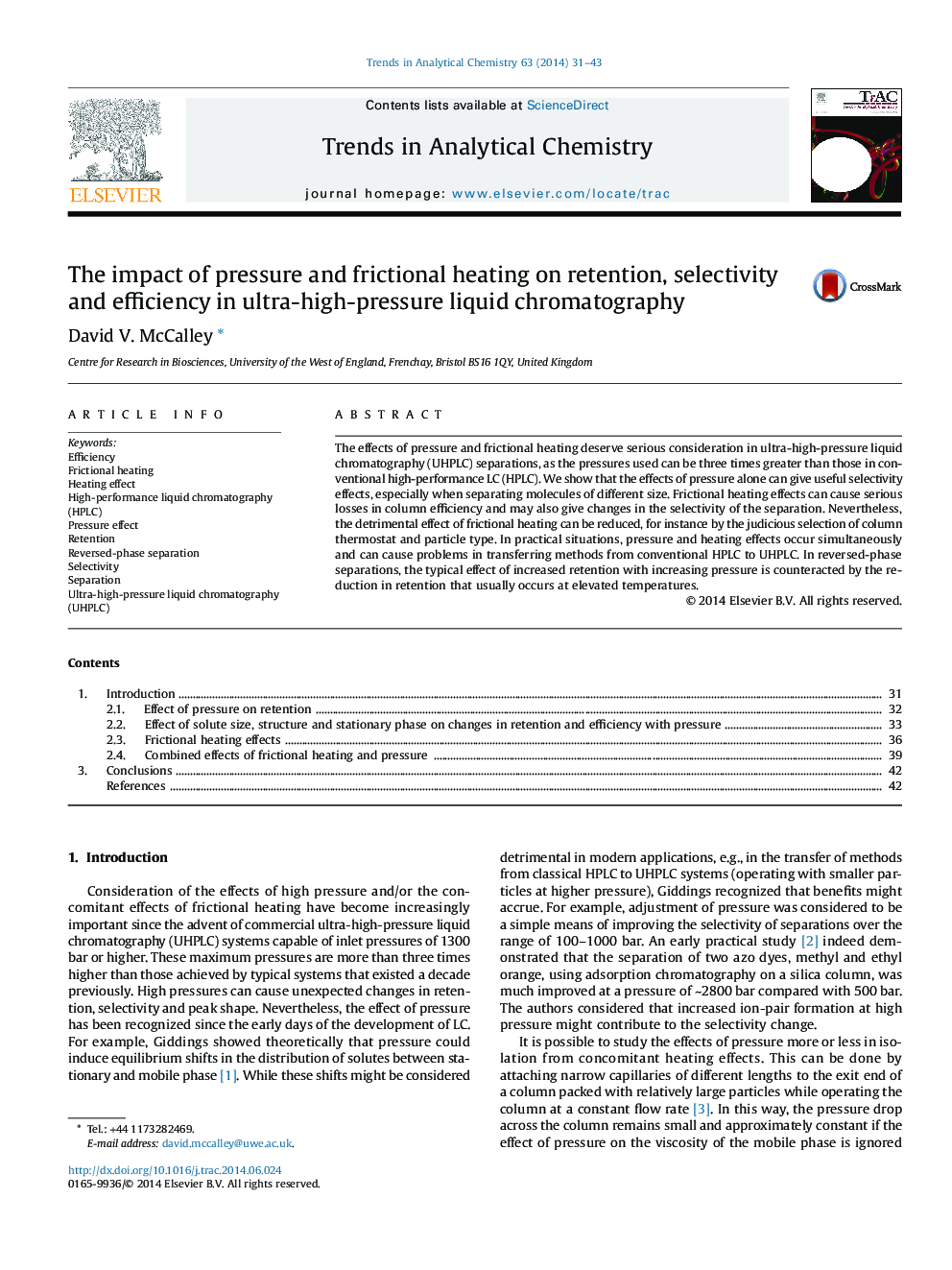| Article ID | Journal | Published Year | Pages | File Type |
|---|---|---|---|---|
| 7689781 | TrAC Trends in Analytical Chemistry | 2014 | 13 Pages |
Abstract
The effects of pressure and frictional heating deserve serious consideration in ultra-high-pressure liquid chromatography (UHPLC) separations, as the pressures used can be three times greater than those in conventional high-performance LC (HPLC). We show that the effects of pressure alone can give useful selectivity effects, especially when separating molecules of different size. Frictional heating effects can cause serious losses in column efficiency and may also give changes in the selectivity of the separation. Nevertheless, the detrimental effect of frictional heating can be reduced, for instance by the judicious selection of column thermostat and particle type. In practical situations, pressure and heating effects occur simultaneously and can cause problems in transferring methods from conventional HPLC to UHPLC. In reversed-phase separations, the typical effect of increased retention with increasing pressure is counteracted by the reduction in retention that usually occurs at elevated temperatures.
Keywords
Related Topics
Physical Sciences and Engineering
Chemistry
Analytical Chemistry
Authors
David V. McCalley,
